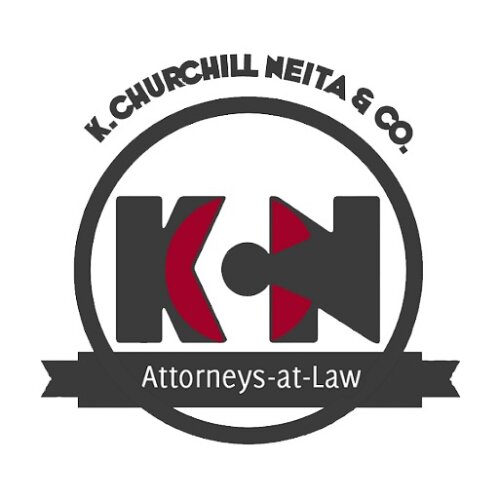Best Renewable & Alternative Energy Lawyers in Kingston
Share your needs with us, get contacted by law firms.
Free. Takes 2 min.
List of the best lawyers in Kingston, Jamaica
About Renewable & Alternative Energy Law in Kingston, Jamaica
Renewable and alternative energy law in Kingston, Jamaica focuses on the legal frameworks that encourage the development, use, and regulation of clean energy sources. These include energy derived from solar, wind, hydro, bioenergy, and other non-fossil fuel-based alternatives. As the capital city, Kingston plays a leading role in Jamaica's efforts to reduce dependence on imported oil and promote sustainable development. The government has implemented policies and regulations to accelerate investments, ensure compliance with international standards, and facilitate the transition to a cleaner energy sector.
Why You May Need a Lawyer
People often encounter complex legal and regulatory challenges when dealing with renewable and alternative energy projects in Kingston. You may need a lawyer in situations such as:
- Navigating permits and licensing for new renewable energy ventures
- Negotiating Power Purchase Agreements with the Jamaica Public Service Company or private entities
- Ensuring compliance with environmental and planning regulations
- Protecting intellectual property or negotiating technology transfer agreements
- Resolving disputes involving land use or grid access
- Understanding incentives, tax breaks, or government grants available to renewable projects
- Addressing zoning issues for solar farms, wind turbines, or biomass facilities
- Managing project finance agreements for independent power producers
Legal support is vital for individuals, businesses, or investors to reduce risks, comply with evolving laws, and successfully develop renewable energy projects.
Local Laws Overview
Kingston's renewable and alternative energy sector is primarily governed by national laws that apply locally, coupled with specific municipal policies. Key regulatory frameworks and authorities include:
- The Electricity Act, 2015 - Establishes the legal basis for electricity generation, distribution, and regulation, including provisions for renewable energy.
- The Office of Utilities Regulation (OUR) - Grants licences and regulates electricity providers, including renewable energy producers.
- The Natural Resources Conservation Authority (NRCA) - Handles environmental permits and oversees compliance with emission and waste standards for energy projects.
- The Building Act, 2018 and the Town and Country Planning Act - Affect construction of renewable energy installations through zoning and construction permits requirements.
- Net Billing, Wheeling, and Electricity Trade - Allow small and medium renewable generators to sell surplus energy to the grid under regulated terms.
- Investment incentives - Such as the Omnibus Incentive Regime and Customs Duty Concessions, which can reduce start-up costs for renewable projects.
Municipal authorities, including the Kingston and St. Andrew Municipal Corporation, also play a role in granting planning permission and ensuring adherence to municipal by-laws. Each stage of a project, from planning to decommissioning, is subject to oversight, and compliance is crucial for success.
Frequently Asked Questions
What types of renewable energy are most common in Kingston, Jamaica?
Solar is the most popular, followed by wind, bioenergy, and hydropower. Solar panels are frequently installed on homes and businesses, while solar farms supply electricity to the grid.
Do I need a permit to install solar panels on my property?
Yes. Permits from the municipal corporation and possible environmental clearance from the NRCA are required, especially for large or commercial installations.
What incentives are available for renewable energy projects in Kingston?
Incentives can include duty and tax breaks on imported renewable equipment and components, investment tax credits, and grant opportunities under government clean energy programs.
Can I sell electricity generated by my renewable system back to the grid?
Yes. Jamaica's net billing, wheeling, and electricity trading policies allow you to sell surplus electricity under certain conditions, subject to obtaining the necessary license and agreements.
What role does the Office of Utilities Regulation play in renewable energy?
The OUR oversees licensing of energy providers, sets tariff structures, monitors compliance, and ensures fair competition in the market.
What environmental regulations must be considered for renewable energy projects?
Developers must comply with the NRCA's requirements, which address land use, pollution, waste management, and environmental impact assessments, especially for large projects.
Are there restrictions on the location of renewable energy installations?
Yes. Zoning laws, planning regulations, and local by-laws determine where you can build, especially for larger installations like wind farms or solar parks.
How long does it take to get approval for a renewable energy project?
Timelines vary depending on the project size, location, and type. Residential solar can be approved in weeks, while commercial projects may take several months or more due to required assessments and multiple agency approvals.
Do I need a lawyer to invest in or start a renewable energy business?
While it is not legally mandatory, retaining a lawyer can help you navigate the regulatory landscape, protect your interests, and ensure compliance, reducing the risk of costly mistakes.
What happens if my renewable energy project does not meet legal or environmental standards?
You may face penalties, project shutdowns, or be required to implement corrective actions, depending on the severity of the breach and applicable laws. Legal advice is recommended to avoid or address such issues.
Additional Resources
Below are valuable resources and organizations for those interested in renewable and alternative energy law in Kingston:
- Ministry of Science, Energy and Technology - Develops national energy policies and programs
- Office of Utilities Regulation (OUR) - Responsible for licensing and regulation of energy projects
- Natural Resources Conservation Authority (NRCA) - Environmental permitting and monitoring
- Development Bank of Jamaica - Offers funding and support for renewable energy initiatives
- Jamaica Public Service Company (JPS) - National electricity grid operator and purchaser of renewable energy
- Kingston and St. Andrew Municipal Corporation - Local planning and permit authority
- Jamaica Renewable Energy Association (JREA) - Industry group supporting policy and professional development
Next Steps
If you are considering a renewable or alternative energy project, or need advice regarding your rights and obligations, consider these steps:
- Gather information about your proposed project, including location, size, and intended energy technology.
- Consult with the relevant government agencies to understand permit, licensing, and environmental requirements.
- Engage a qualified attorney experienced in Jamaican energy law to guide you through the legal process, draft necessary documents, review contracts, and represent your interests before regulatory bodies.
- Stay informed on updates in regulations and incentive programs to take full advantage of available support.
- Seek advice early in your project to identify potential challenges, avoid delays, and ensure compliance at each stage of the development process.
Getting professional legal advice helps ensure that your investment is protected, your business is compliant, and your renewable energy venture in Kingston is set up for long-term success.
Lawzana helps you find the best lawyers and law firms in Kingston through a curated and pre-screened list of qualified legal professionals. Our platform offers rankings and detailed profiles of attorneys and law firms, allowing you to compare based on practice areas, including Renewable & Alternative Energy, experience, and client feedback.
Each profile includes a description of the firm's areas of practice, client reviews, team members and partners, year of establishment, spoken languages, office locations, contact information, social media presence, and any published articles or resources. Most firms on our platform speak English and are experienced in both local and international legal matters.
Get a quote from top-rated law firms in Kingston, Jamaica — quickly, securely, and without unnecessary hassle.
Disclaimer:
The information provided on this page is for general informational purposes only and does not constitute legal advice. While we strive to ensure the accuracy and relevance of the content, legal information may change over time, and interpretations of the law can vary. You should always consult with a qualified legal professional for advice specific to your situation.
We disclaim all liability for actions taken or not taken based on the content of this page. If you believe any information is incorrect or outdated, please contact us, and we will review and update it where appropriate.









